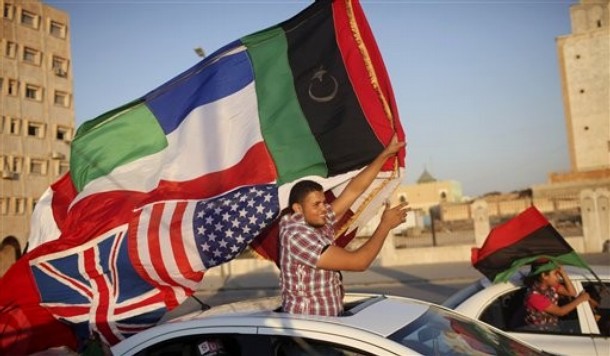
From Luke Coffey, the Heritage Foundation: To the south of Europe, from the eastern Atlantic Ocean to the Middle East, is a region experiencing increasing instability from demographic pressures, increased commodity prices, interstate and intrastate conflict, piracy, tribal politics, competition over water and other natural resources, religious tension, revolutionary tendencies, terrorism, and nuclear proliferation. This region also has some of the world’s most vital shipping lanes, energy resources, and trade choke points. Obviously, instability in this region can directly impact NATO’s security interests.
However, whether it is regional terrorism emanating from al-Qaeda or the threat of nuclear proliferation in Iran, NATO member states share many of the same security concerns as the countries of the Middle East and North Africa. Furthermore, many of the countries in this region have demonstrated a willingness to cooperate with NATO and have even contributed troops to NATO-led missions. NATO’s Kosovo Force currently has 100 Moroccans and, until a few years ago, had 1,200 soldiers from the UAE. . . .
After the Chicago Summit: The Way Ahead
The hardest part of any summit is not agreeing on a common language for the declaration but implementing the declaration into practice.
To help NATO improve its relations with its southern neighbors, the U.S. should:
- Call on NATO to appoint a Special Representative for the Middle East. In the Middle East, personal relationships are paramount. NATO should appoint a highly respected statesman with knowledge of the region to be an enduring point of contact.
- Provide leadership inside NATO to expand the membership of the Mediterranean Dialogue and the Istanbul Cooperation Initiative . In particular, NATO should expand to include countries where U.S. and European blood and treasure have been invested, such as Iraq and Libya. The more cooperation, the better.
- Show that the countries of the Middle East and North Africa are important. Neither the Mediterranean Dialogue nor the Istanbul Cooperation Initiative has formally met during a NATO summit at the heads-of-government level. The next NATO summit should include meetings of both groupings.
- Focus on the ICPC format until countries feel comfortable joining the Mediterranean Dialogue or the Istanbul Cooperation Initiative. Many important allies will find it politically difficult domestically to join a grouping inside NATO. This should not prevent the alliance from cooperating with these allies.
Promoting Partnership
Partnership leads to interoperability, which helps promote understanding and security. This is why cooperation between NATO and the countries of the Middle East and North Africa is so important. As Iran becomes more of a destabilizing player in the region and al-Qaeda continues to operate in North Africa, NATO should build solid and enduring relations with the friendly countries of the region.
Luke Coffey is the Margaret Thatcher Fellow in the Margaret Thatcher Center for Freedom, a division of the Kathryn and Shelby Cullom Davis Institute for International Studies, at The Heritage Foundation. (photo: AP)
Image: ap%208%2024%2011%20Libya%20flags.jpg
